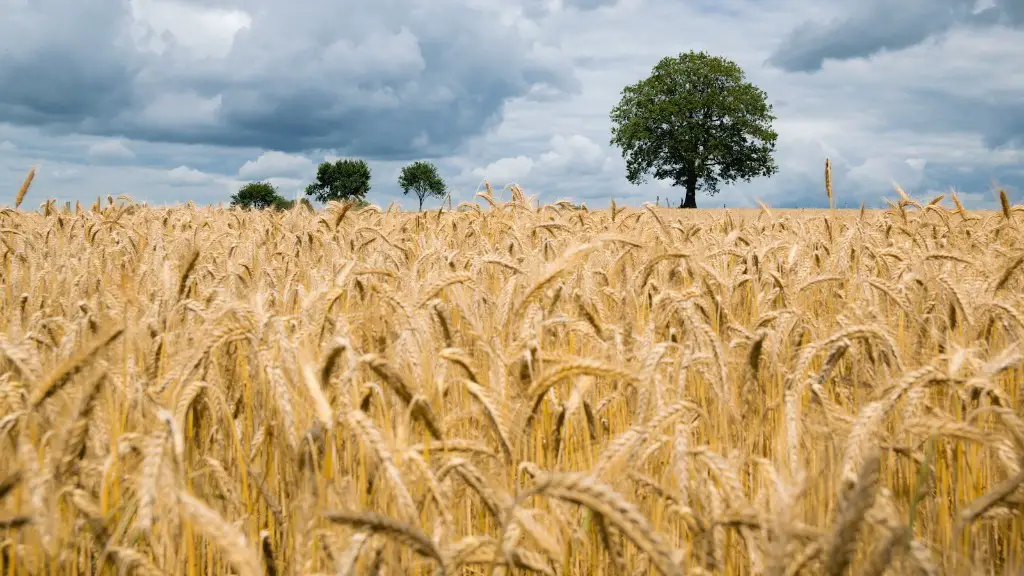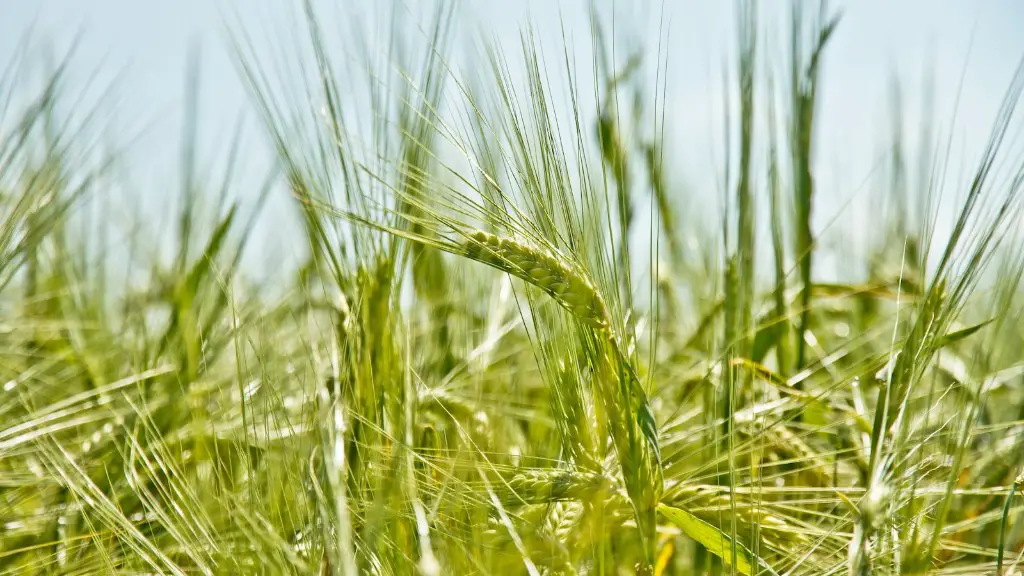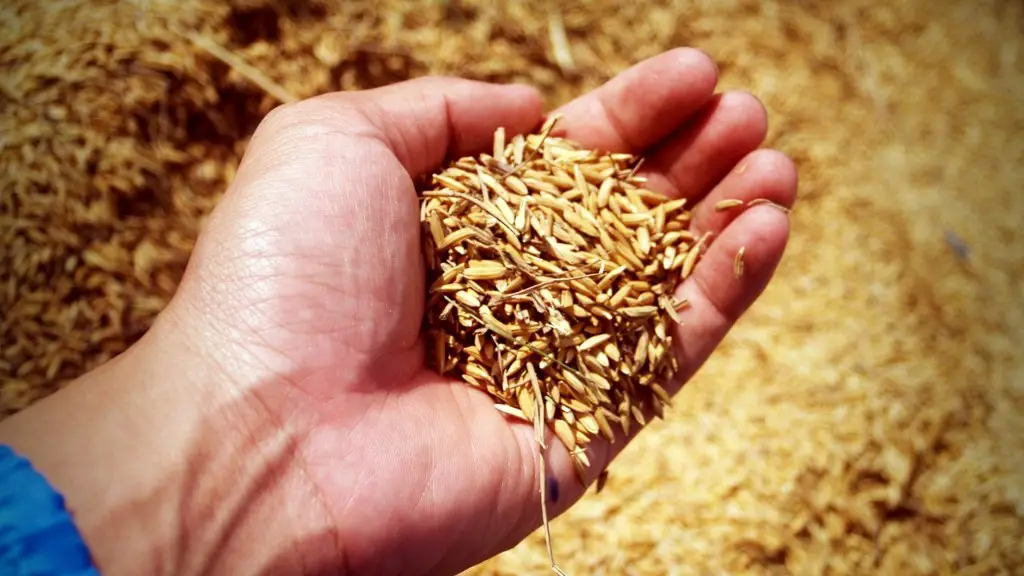The question of whether agriculture income is taxable has been a controversial one for many years. There are a number of arguments for and against taxing agriculture income. Those who argue in favor of taxing agriculture income argue that it is a significant source of income for many people and that it should be subject to the same tax laws as other forms of income. Those who argue against taxing agriculture income argue that it is a necessary part of the food production process and that taxing it would put an undue burden on farmers.
There is no definitive answer to this question as it depends on individual circumstances. Generally speaking, however, agricultural income is considered taxable. This includes income from crops, livestock, and other related activities. There may be some exceptions or deductions available, but it is advisable to speak with a tax professional to determine if these apply in your situation.
What qualifies as farm income?
A farm income statement is a summary of a farm’s income and expenses for a specific period of time. This statement can be used to help farmers track their progress and make decisions about their business.
If you are working for someone else, your earned income includes your wages, salaries, tips, and other taxable employee compensation. If you are self-employed, your earned income includes money you earn from your business or farm minus any business expenses.
How is farm income taxed
Most farms are a pass-through entity, which means that the business itself does not pay income taxes, but the tax is passed through to the owner(s). Generally, income and expenses are reported on the Schedule F or Schedule C of Form 1040.
California, like many other states, offers property tax breaks for agricultural land. Specifically, farmers are able to take 20 to 75 percent off their property tax bill if they agree not to develop their land for ten years and do so with at least 100 acres. This program is designed to incentivize farmers to keep their land in agricultural production, which is important for the state’s economy.
What is the 5 year loss rule farmers?
Hobby farming rules are sets of guidelines that dictate how often a farmer must generate a profit. The five-year rule is the most well-known of these rules, and it states that a farmer can have five years of losses but must generate a profit in the sixth year. Hobby farming can be a great way to make a living, but it’s important to be aware of the guidelines and rules that govern this type of farming.
If you work on a farm and your employer pays you $150 or more in cash wages during the calendar year, your wages are covered by Social Security. If you are paid less than $150 in cash wages, but your employer reports total expenses for agricultural labor to the IRS of $2,500 or more for the year, your wages are also covered by Social Security.
How much agricultural income is exempt from tax?
Agricultural income is exempt from taxation if it meets either of the following two criteria:
1) Net agricultural income is under Rs 5,000
2) The total income, with the exception of income from agriculture, is below the threshold for basic exemption
If you want the IRS to consider your activity as a trade or business and not a hobby, you need to be able to show a profit motive. This means that your income from the activity must be greater than your expenses, where expenses include the depreciation of any capital assets.
What expenses can farmers write off
The IRS allows farmers to deduct a wide variety of expenses that are incurred in the course of running their business. These expenses can include the cost of livestock and feed, seeds, fertilizer, wages paid to employees, interest paid during the year on farm-related loans, depreciation to recover a portion of equipment costs, utilities and insurance premiums. By taking advantage of all the deductions that are available, farmers can minimize their tax liability and keep more of their hard-earned money.
The government is committed to promoting entrepreneurship among farmers and fisherfolk, and one way to do this is by exempting them from income tax on income derived from their enterprises. This will help them to invest more in their businesses, and ultimately create more jobs and contribute to economic growth.
How do I report farm income?
Farmers must use Schedule F (Form 1040) to report their farming income and expenses. This form must be filed with Form 1040, 1040-SR, 1040-NR, 1041, or 1065.
Farming activities may subject the farmer to state and local taxes, as well as other requirements such as business licenses and fees. Therefore, it is important for farmers to be aware of all the potential requirements and costs associated with farming before embarking on this business venture.
A farm can make losses for a number of years in succession, and these losses can be offset against other income for the first three years. Special rules extend this period in the case where a farmer commences his/ her trade. No loss relief is available for hobby farming.
Can I write off a tractor on my taxes
If you’re considering an equipment purchase in the current tax year, you can estimate those savings using the 2023 Section 179 Tax Deduction Calculator. For example, a $200,000 tractor coupled with Section 179 can reduce the true cost of the purchase to $130,000, freeing up $70,000 in cash savings.
An animal unit is defined as a 1,000-pound cow, or the equivalent weight of other grazing animals. Therefore, the minimum requirement for grazing stock is four 1,000-pound cows, or the equivalent weight of other grazing animals.
What is the ag tax rate in California?
The state of Washington has a statewide sales and use tax rate of 65%, but local taxes can raise the total to 86% in some local jurisdictions. California has the second highest rate for agricultural machinery, with a statewide rate of 6%, and county, local and special district taxes that increase the rate to a range of 725 to 85%.
If you are a farmer, it is important to show a profit in your business 3 out of 5 years, according to the IRS. This is because always showing a loss on your Schedule F can alert the IRS that your operation may be a hobby, and not a for-profit business. You can still expect future profits in your farming activities, even if they are not large.
Warp Up
There is no definitive answer to this question as it depends on the country in question and its tax laws. However, in general, agricultural income is considered taxable income. This means that farmers and other agricultural workers may be required to pay taxes on the money they earn from their work in the agricultural sector.
After careful consideration, it has been determined that agriculture income is taxable. This is because agriculture is a business and businesses are taxed. This will help to level the playing field and also help to generate revenue for the government. Thank you for your time.





